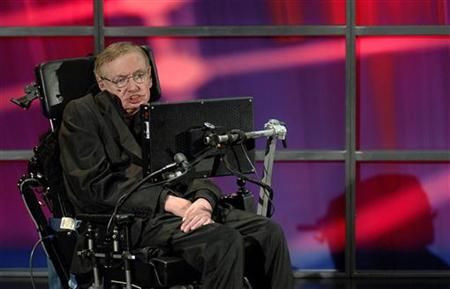Experts Wince at Light-Speed Breaching Neutrinos; Fermilab to Assess Finding

Several physicists, including some who have won the Nobel Prize, have expressed doubts about the veracity of the new finding that subatomic particles called neutrinos can travel faster than light.
They say the new claim is incorrect and that Einstein's theory of special relativity will remain uncontested.
I'm willing to bet money that it's not correct, 2006 Physics Nobel Prize winner George Smoot III told Xinhua. There are many distortions in physics. You have to have a very high standard to see if something is truly correct.
Meanwhile, scientists from Fermilab, a U.S. Department of Energy laboratory on Chicago, said the results of the experiment were being re-analyzed. We're updating the [MINOS] to measure more precisely the time that it takes the neutrinos to travel from Fermilab to the detector in Minnesota, spokesman Kurt Riesselmann told the Sydney Morning Herald.
MINOS is the name of the similar experiment conducted by Fermilab in 2007. The experiment will also take new data in the upcoming year and analyze those, and hope to improve the position to confirm or refute the OPERA result, the spokesman said.
Scientists at the Gran Sasso facility in central Italy said last week their experiments showed that subatomic particles known as neutrinos breached the speed of light. If the theory is proved right, it would negate the scientific understanding that nothing in the universe is faster than light and open up the possibility of time travel.
But prominent physicists say the new finding doesn't have the gravitas needed to topple Albert Einstein's theory of special relativity.
If somebody makes a very exceptional claim, then very exceptional proof would need to come from another experiment, saying the same thing. But we don't have the other thing, said Chris Llewellyn Smith, former director of CERN.
The researchers said their experiments, called OPERA, showed that neutrinos travelled from the particle accelerator at the CERN facility near Geneva to the Gran Sasso facility in Italy at a speed marginally higher than light. The subatomic particles took 60 billionths of a second, or 60 nanoseconds, less than what a light beam would take to race through the distance of about 450 miles. The experiment had an error margin of plus or minus 10 billionths of a second, according to scientists.
The research showed the neutrinos travelled at 299,798,454 meters per second, faster than the speed of light, which is pegged at 299,792,458 meters per second.
But many are not convinced. Carlos Rubbia, who won the Nobel Prize for physics in 1984, said: I will be very, very surprised that, at last, Einstein will not be the winner.
What it is pretending to find, in my view, is unbelievably surprising, he said. He says the new finding remains a very experimental consideration, adding that revealing the results of the experiments to the public this early was a mistake.
If the finding is true, it will have far-reaching implications as the hitherto accepted precept was that nothing can travel faster than the speed of light. Einstein had said if there was a way to send a message faster than light the possibility of sending a telegram to the past was real. But his theory of special relativity holds that the speed of light speed was a cosmic constant and that nothing could travel faster.
Stephen Hawking said it was premature to comment on the new finding, adding that further experiments and clarifications were needed.
British physicist Jim Al-Khalili said there would probably be an error in the data. If the CERN experiment proves to be correct and neutrinos have broken the speed of light, I will eat my boxer shorts on live TV, he told the Telegraph.
The Marquette Tribune quoted a neutrino physics expert as saying that the physics community is skeptical of the results. This is an extraordinary claim ... It is analogous to climbing up the tower of Pisa, dropping a rock and watching (the) rock fly instead of dropping, said Baha Balantekin.
© Copyright IBTimes 2024. All rights reserved.





















